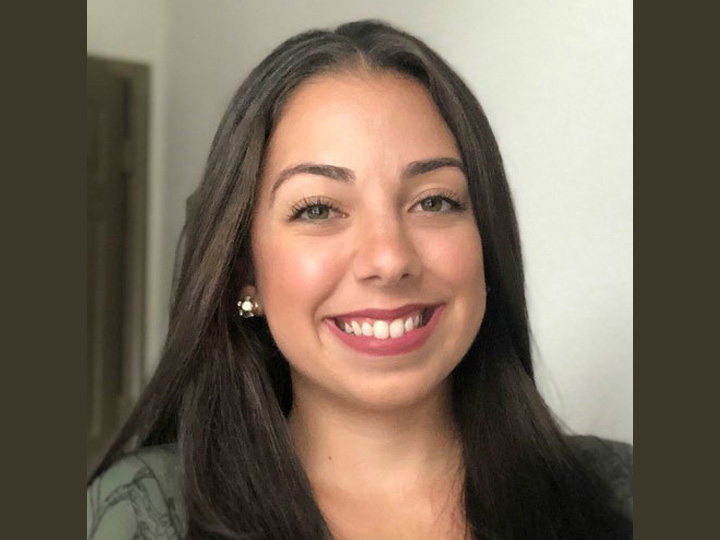
Michelle Hernandez, a second-generation immigrant and Ph.D. student in the department of communication sciences and disorders (COMD), has secured a coveted F31 grant from the National Institute of Health to delve into the intricate world of code-switching between bilingual children.
Growing up in the Bronx in a Spanish-speaking household, Hernandez experienced this phenomenon firsthand. She had little exposure to English until she was seven years old. Her groundbreaking research not only explores code-switching between two or more languages in a conversation, sentence or situation, but aims to unravel its impact on the language development and communication abilities in bilingual children.
“Michelle has been a trailblazer in the Ph.D. program,” Margaret “Peggy” Blake said, chair of the department of communication sciences and disorders. “Of the first cohort, she is the only student at the graduate level full-time. She’s the first person to go through comprehensive exams and the first to submit a grant application. To see her succeeding at the level she is succeeding at is phenomenal. It is exciting and sets a really great example of what our Ph.D. program can be, the work of our mentors at this point and what our other doctoral students can accomplish by watching her succeed.”
Under the mentorship of Anny Castilla-Earls, COMD professor specializing in bilingualism and code-switching, Hernandez is looking at the role of code-switchers (interlocutors) and the potential complications in the language development of bilingual children and the best educating styles for bilingual children with language impairments.
“I knew when they were meeting to review the grant, and I kept watching for the results and updates,” Hernandez said. “When I first saw an update, it was noted that I had an impact score of 10, and I had to go ask what that meant. I was told it was a perfect score, and I was shocked. Honestly, I still can’t believe it.”
Previous studies have examined various contributing factors to code-switching, such as language proficiency, cultural identity and social context. Hernandez’s research zeroes in on nonverbal and verbal cues exhibited by communication partners. Analyzing conversations between bilingual children, she seeks to determine how interlocutor behavior influences code-switching patterns and language development.
“I hope this will help speech pathologists,” Hernandez said. “A lot of us in our field use it to assess bilinguals in both languages, and anything that is code-switched gets excluded, but those code switches have a lot of information about their language ability. If we can look at that and assess the basics such as, ‘They are only producing verbs in Spanish,’ or ‘The pronouns are only in English,’ we can get a great overview of what the child is going through when learning two languages.”
By tailoring interventions to consider these factors, speech language pathologists and educators can create supportive environments that foster bilingual language development. Hernandez seeks to deduce how bilingual children gain, develop and master a second language, focusing primarily on the impact of the surrounding environment and context on their code-switching. Specifically, she will investigate whether the language used by the person the child is speaking with affects their likelihood of code-switching. The research may also inform the development of culturally responsive and inclusive education practices that celebrate language diversity and provide equal opportunities.
“Hernandez is dedicated to unraveling the complexities of code-switching, demonstrating her experience, expertise, authority and trust in the field,” Blake said. “Through her research, she is paving the way for more inclusive language practices and interventions that support the linguistic development of bilingual children.”